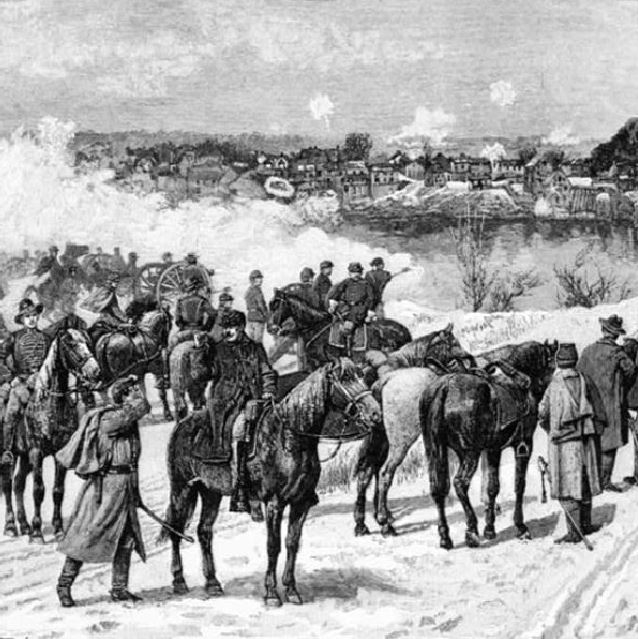The American Civil War from 1861 to 1865 saw fierce fighting between the Union and Confederate armies. Many towns and cities across the country were caught in the crossfire as control of territory switched between the opposing sides.
Some towns changed hands multiple times over the course of the war as advances and retreats caused them to cycle between Union and Confederate control.
Below are the 5 towns that experienced the most repeated exchanges of control during the Civil War.
1. Winchester, Virginia – The Town that Changed Hands the most
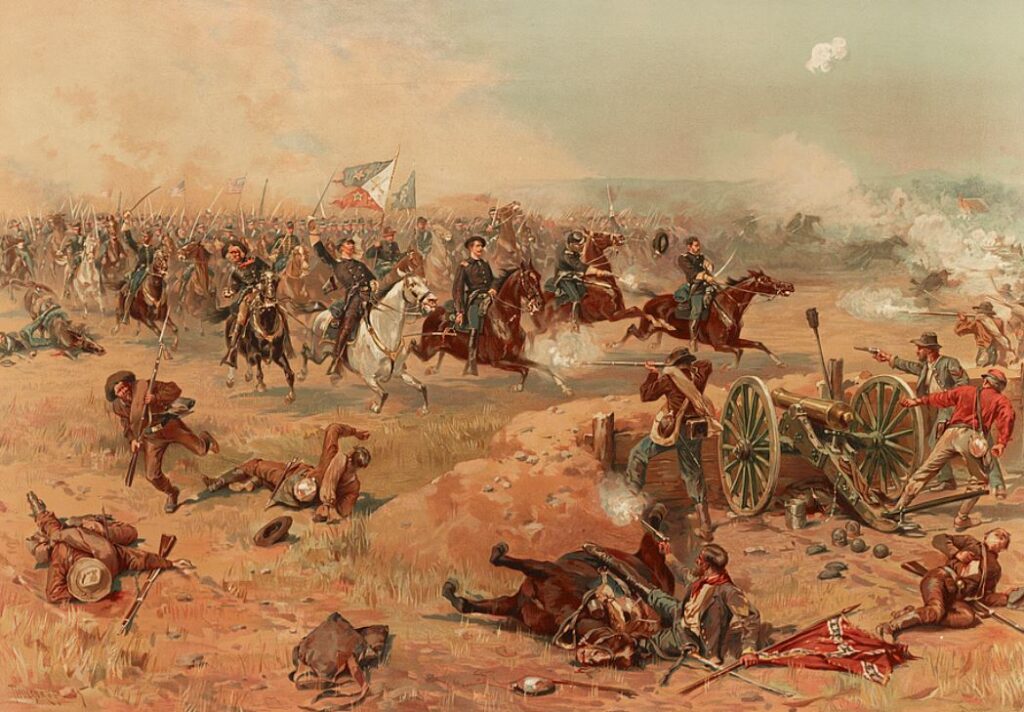
Winchester changed hands between the Union and Confederacy over 70 times during the Civil War, more than any other town.
This northern Virginia town was of great strategic importance due to its location in the Shenandoah Valley. Control of Winchester meant control over the valley, which was an important breadbasket region as well as a key transportation corridor.
Winchester first fell under Confederate control in 1861. Over the next two years, Winchester exchanged hands repeatedly as Union and Confederate forces battled for control. At one point, Winchester changed hands over 50 times in just a few months.
Famous Confederate leaders like Stonewall Jackson and Jubal Early made Winchester their base of operations at times.
But the Union also captured Winchester on several occasions, only to lose it again when Confederate reinforcements arrived.
This constant back-and-forth made life in Winchester extremely disruptive and uncertain for residents.
2. Harpers Ferry, West Virginia
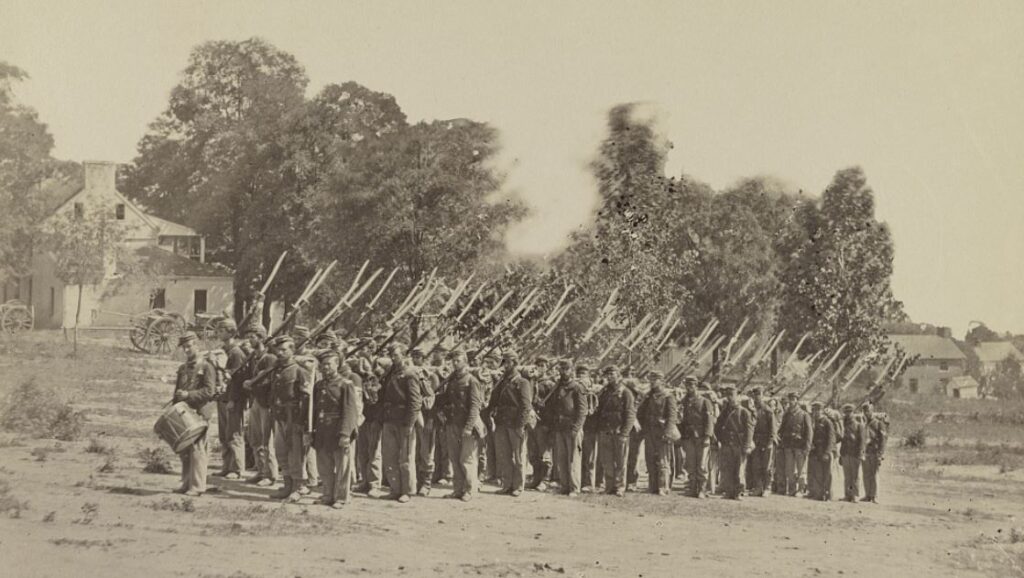
The town of Harpers Ferry, located at the confluence of the Potomac and Shenandoah Rivers in what is now West Virginia, was the site of numerous exchanges between Union and Confederate forces.
Its strategic location made it a prized possession during the war. Harpers Ferry was the site of a major US Armory and Arsenal, making it a valuable military asset.
At the start of the war in 1861, Confederate forces captured Harpers Ferry and seized the weapons and munitions there. Later that year, Union forces took back the town and controlled it for most of the rest of the war.
However, Harpers Ferry did change hands several more times. In September 1862, Confederate troops under Stonewall Jackson re-captured Harpers Ferry during Jackson’s Shenandoah Valley Campaign. But just a few days later, Union forces regained control.
In the summer of 1863, Confederate cavalry briefly occupied Harpers Ferry again during the Gettysburg Campaign before the Union reasserted authority. In 1864, Confederate raiders once more temporarily seized parts of Harpers Ferry.
So while Harpers Ferry remained mostly in Union control, its strategic nature meant both armies fought hard to capture and defend this town throughout the war. Few towns were as contested in the region as Harpers Ferry.
3. Yorktown, Virginia
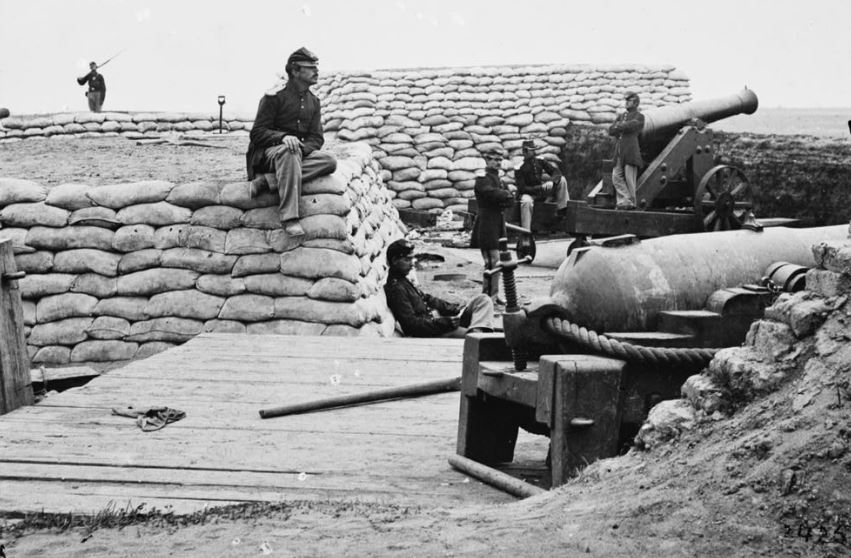
The coastal town of Yorktown in southeastern Virginia along the York River saw intensive fighting in 1862 during the Peninsula Campaign.
Union General George McClellan had advanced up the peninsula towards the Confederate capital of Richmond. Yorktown and the surrounding area traded control between the armies multiple times that year.
The Confederates had fortified Yorktown with trenches and artillery, but were forced to withdraw under Union siege operations in early May 1862.
Later that month, Confederate forces under General Johnston tried unsuccessfully to retake Yorktown. In late May, another attempt by Johnston re-captured Yorktown for two days before Union forces regained control.
The strategic town continued to be contested for the next couple months as both sides jockeyed for position on the peninsula.
4. Fredericksburg, Virginia
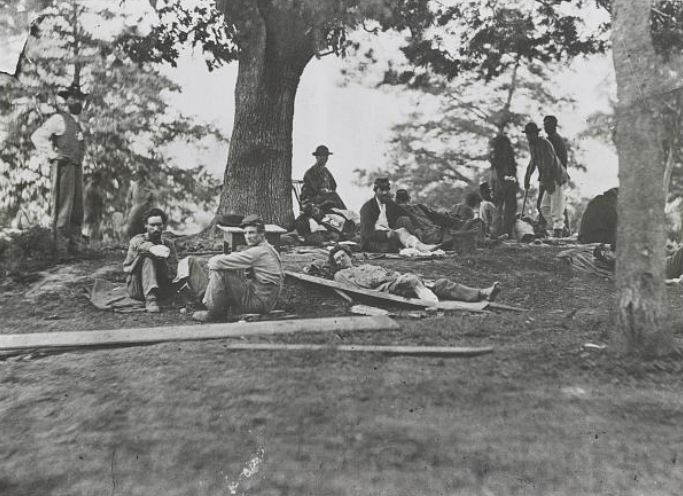
The city of Fredericksburg along the Rappahannock River in northern Virginia changed hands at least five times over the course of the war. As a key river crossing point, Fredericksburg was the site of several major battles.
Fredericksburg was taken by Union forces in April 1862. The Confederates later re-took the town in August of that year and fortified it heavily.
In December, despite a bloody frontal assault, Union forces briefly penetrated Fredericksburg but were ultimately forced to withdraw.
Over the next couple years, intermittent fighting caused Fredericksburg to trade hands multiple times between raids and campaigns by both armies. The constant shifts took a heavy toll on the town.
5. Murfreesboro, Tennessee
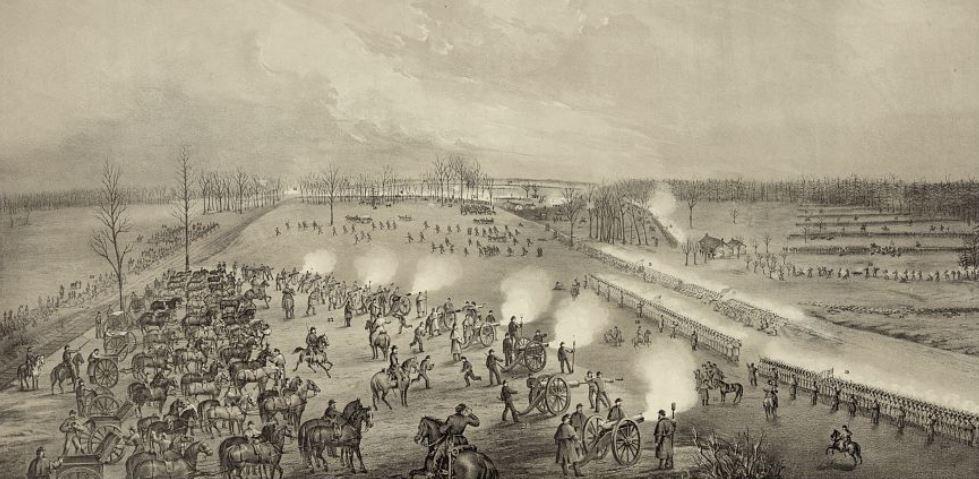
The town of Murfreesboro in central Tennessee was the site of extensive fighting including the Battle of Stones River in late 1862 and early 1863. This key battle for control of Middle Tennessee caused Murfreesboro to change hands multiple times.
In 1862, Confederate forces occupied Murfreesboro as they advanced northwards. But in early January 1863, the Union army pushed the Confederates back and took Murfreesboro following intense combat during the Battle of Stones River.
However, later in 1863, the Confederate army returned and re-took Murfreesboro in a surprise cavalry raid.
Over the next couple years, Murfreesboro remained contested territory, changing hands occasionally as Union and Confederate forces raided and patrolled the region.
Like many Southern towns, Murfreesboro witnessed its share of hardship and destruction as Union and Confederate armies battled for supremacy.
Further Reading
If you enjoyed this article, you may be interested to read more about the American Civil War events, or perhaps read about the bloodiest battles of the Civil War. Read here for more general American history.

